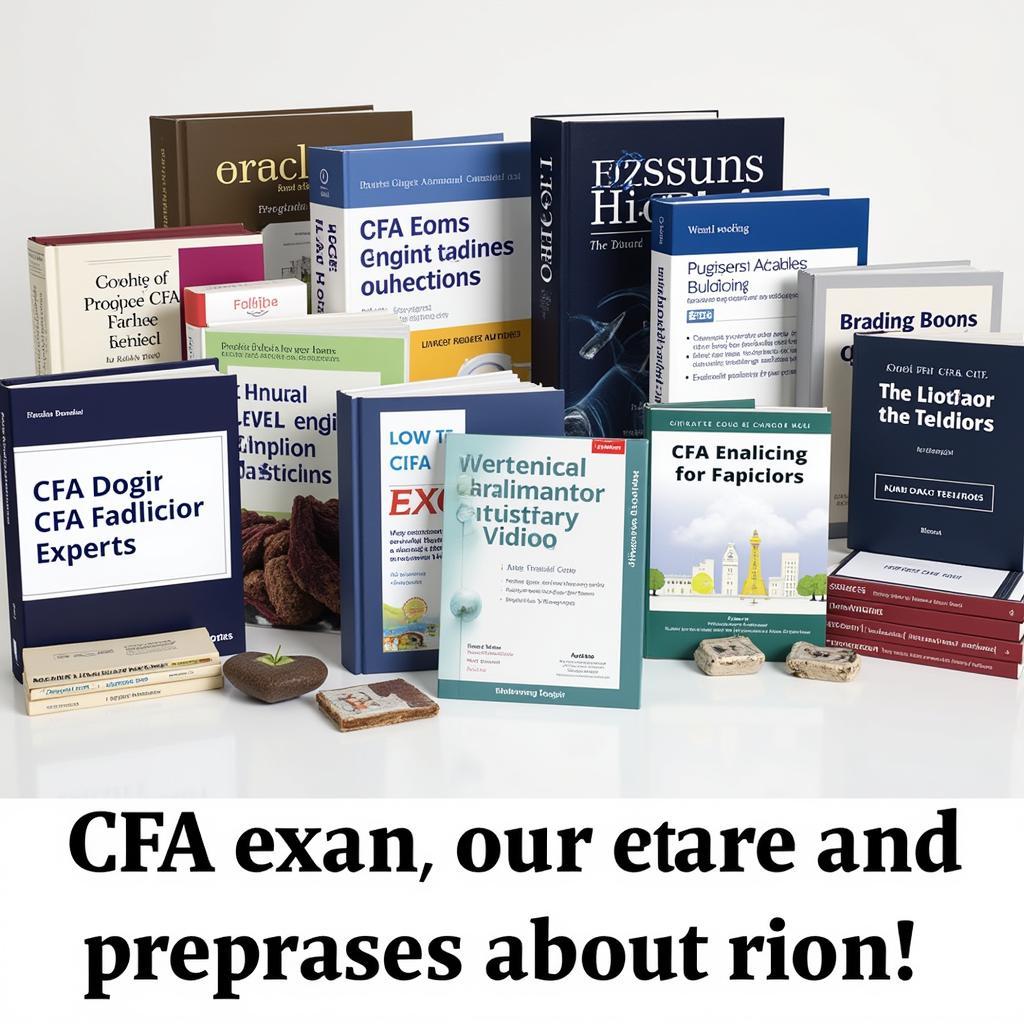Earning the Chartered Financial Analyst (CFA) designation is a significant achievement for finance professionals. This globally recognized credential signifies a deep understanding of investment management and ethical practices. But where do you begin your journey to become a CFA charterholder? This guide provides a comprehensive overview of how and where to study for the CFA exam.
Understanding the CFA Program
Before diving into study options, it’s crucial to understand the CFA Program’s structure. The program consists of three levels, each requiring a rigorous exam. The curriculum covers a broad range of topics, including ethical and professional standards, financial reporting and analysis, corporate finance, portfolio management, and wealth planning. Each level builds upon the previous one, culminating in a comprehensive understanding of the investment profession.
CFA Exam Preparation Options
Several paths can lead you to CFA exam success. Choosing the right one depends on your learning style, budget, and time commitment. Here’s a breakdown of the most common options:
Self-Study
Self-study is a popular choice for those with strong self-discipline and budgetary constraints. It involves utilizing the official CFA Institute curriculum and other readily available resources.
- Pros: Cost-effective, flexible schedule.
- Cons: Requires significant self-motivation, lacks structured guidance.
CFA Prep Courses
Prep courses offer a more structured learning environment with expert instruction, practice questions, and mock exams. These courses can be online or in-person.
- Pros: Structured learning, expert guidance, access to practice materials.
- Cons: Can be expensive, requires adherence to a set schedule.
 Online CFA Prep Course
Online CFA Prep Course
University Programs
Some universities offer CFA-affiliated programs that integrate the CFA curriculum into their master’s degree coursework. This option provides a structured academic environment and often includes access to dedicated resources and faculty support.
- Pros: Academic rigor, networking opportunities, integrated curriculum.
- Cons: Higher cost, requires full-time commitment.
Choosing the Right Study Method for You
The ideal study method depends on your individual learning style and circumstances. Consider the following factors:
- Learning Style: Are you a visual, auditory, or kinesthetic learner?
- Time Commitment: How much time can you realistically dedicate to studying?
- Budget: What’s your budget for study materials and courses?
- Support System: Do you prefer independent study or a structured learning environment?
Tips for CFA Exam Success
Regardless of your chosen study method, here are some essential tips for success:
- Create a Study Plan: Develop a realistic study schedule and stick to it.
- Practice Regularly: Utilize practice questions and mock exams to assess your progress.
- Understand the Curriculum: Don’t just memorize; strive for a deep understanding of the concepts.
- Stay Motivated: Connect with other CFA candidates for support and encouragement.
“Consistent effort and a deep understanding of the material are key to passing the CFA exams,” says John Smith, CFA, Portfolio Manager at XYZ Investments. “Don’t underestimate the importance of practice and seeking help when needed.”
Maximizing Your CFA Preparation
Beyond choosing a study method, there are other ways to enhance your preparation:
Utilize CFA Institute Resources
The CFA Institute provides a wealth of resources, including the official curriculum, practice questions, and mock exams. Make sure to take advantage of these valuable tools.
Join a Study Group
Connecting with other CFA candidates can provide valuable support and motivation. Study groups offer a platform for discussing challenging concepts and sharing study strategies.
 CFA Exam Preparation Books and Resources
CFA Exam Preparation Books and Resources
Seek Mentorship
Finding a mentor who has already earned the CFA charter can provide invaluable guidance and insights. A mentor can offer advice on study strategies, career paths, and navigating the challenges of the CFA program.
“A mentor can be a crucial resource for CFA candidates,” adds Jane Doe, CFA, Senior Analyst at ABC Capital. “They can provide personalized guidance and support that can significantly enhance your preparation and career prospects.”
Conclusion
The CFA designation is a valuable credential for finance professionals. Choosing the right study method and utilizing effective preparation strategies are crucial for success. By understanding your learning style, creating a structured study plan, and leveraging available resources, you can embark on your CFA journey with confidence and achieve your career goals. Remember to contact TRAVELCAR at 0372960696, [email protected] or visit us at 260 Cầu Giấy, Hà Nội for any transportation needs during your study journey. We offer 16, 29, and 45-seater vehicle rentals, airport transfers, and custom tours. Our 24/7 customer service team is ready to assist you.
FAQ
- How long does it typically take to complete all three levels of the CFA Program?
- What is the pass rate for the CFA exams?
- What are the career benefits of earning the CFA charter?
- How much does it cost to enroll in the CFA Program?
- Are there any prerequisites for taking the CFA exams?
- What are some effective study strategies for the CFA exams?
- How can I find a CFA mentor?
Do you have more questions? Explore our other helpful articles on our website.
Need support? Contact us at Phone Number: 0372960696, Email: TRAVELCAR[email protected], or visit our office at 260 Cầu Giấy, Hà Nội. We have a 24/7 customer service team ready to assist.

